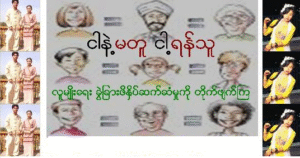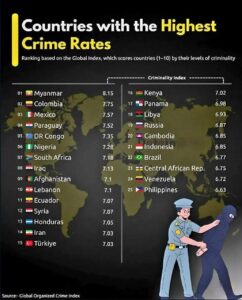Translated the Myanmar post by Hla Soewai |
MMNN Opinion
Reports have surfaced of AA abuses against Rohingya communities, which the AA has denied. The junta, for its part, has exploited the crisis by arming local Muslims to fight the AA—fueling sectarian tensions and further complicating the conflict. Bangladesh’s relations with the AA are becoming strained, amid speculation that Dhaka could support the creation of a Rohingya-administered enclave.

The Arakan Army (AA) is steadily advancing toward capturing the last three towns still held by the junta in Rakhine. This moment is decisive—not only for Myanmar’s civil war, but for the geopolitical balance of the entire region. As Al Jazeera recently reported, the battle unfolding in Rakhine could redraw the political and strategic map of Myanmar and beyond.
Across much of the country, the junta has been launching desperate offensives to retake lost ground. In Rakhine, however, the military is largely confined to defensive positions, relying on a siege strategy that cuts off food supplies to the population. According to UN estimates, some two million civilians now face the threat of hunger, with 57% of central Rakhine families unable to meet their basic food needs. This marks a sharp rise from 33% in December, underscoring the humanitarian emergency.
At the same time, reports have surfaced of AA abuses against Rohingya communities, which the AA has denied. The junta, for its part, has exploited the crisis by arming local Muslims to fight the AA—fueling sectarian tensions and further complicating the conflict. Bangladesh’s relations with the AA are becoming strained, amid speculation that Dhaka could support the creation of a Rohingya-administered enclave.
Inside Sittwe, thousands are trapped, with access in and out only possible by air or sea. Prices have soared: pork that once cost 8,000 kyat per viss now fetches over 50,000. Hunger, suicides, looting, and lawlessness spread as the rule of law collapses. The Arakan Liberation Army, tied to the junta, is accused of spying on households and checking for “pro-AA” ink stains at checkpoints—creating the impression that junta-controlled areas of Rakhine are under an occupying power.
Airstrikes have already killed over 400 civilians since late 2023, yet yielded no decisive results. Both the AA and junta continue mobilizing: the junta claims to have recruited 70,000 fighters over the past 16 months, while the AA has swelled to an estimated 40,000, with up to 10,000 prepared for the coming Kyaukphyu offensive. Analysts such as Anthony Davis predict that September or October—when heavy cloud cover hampers airstrikes—could see the beginning of a major battle.
Kyaukphyu, with its strategic port and energy corridor, is the jewel. The junta has stationed 3,000 troops there, supported by drones, jets, and naval assets. Yet the AA’s growing confidence stems from its recognition that northern arms routes may not remain open indefinitely—pushing it to seize decisive control now.
If Kyaukphyu falls, the implications are enormous. The AA could dominate trade corridors used by both China and India, collecting revenues no other armed group in Myanmar has ever controlled. This could also pave the way for a parallel “Rakhine People’s Revolutionary Government.” Already, the AA is expanding beyond Rakhine, emerging as the leading force in Myanmar’s largest armed alliance.
For China, about 50 security staff remain in Kyaukphyu, but Beijing seems to signal that AA control may not endanger its core economic interests. For India, however, the outlook is more precarious: an AA victory could weaken New Delhi’s strategic foothold, while strengthening Beijing’s hand along the Bay of Bengal.
The future remains uncertain. The AA may eventually negotiate a ceasefire with the junta—or press on for total victory. But as the ULA (AA’s political wing) has declared, this revolution is different. It is not about temporary advances and retreats, but about delivering a meaningful shift in Myanmar’s balance of power.
For the people of Rakhine, who endure blockade, hunger, and bombardment, the stakes are immense. But the AA insists: “The people’s just war will surely triumph.”






